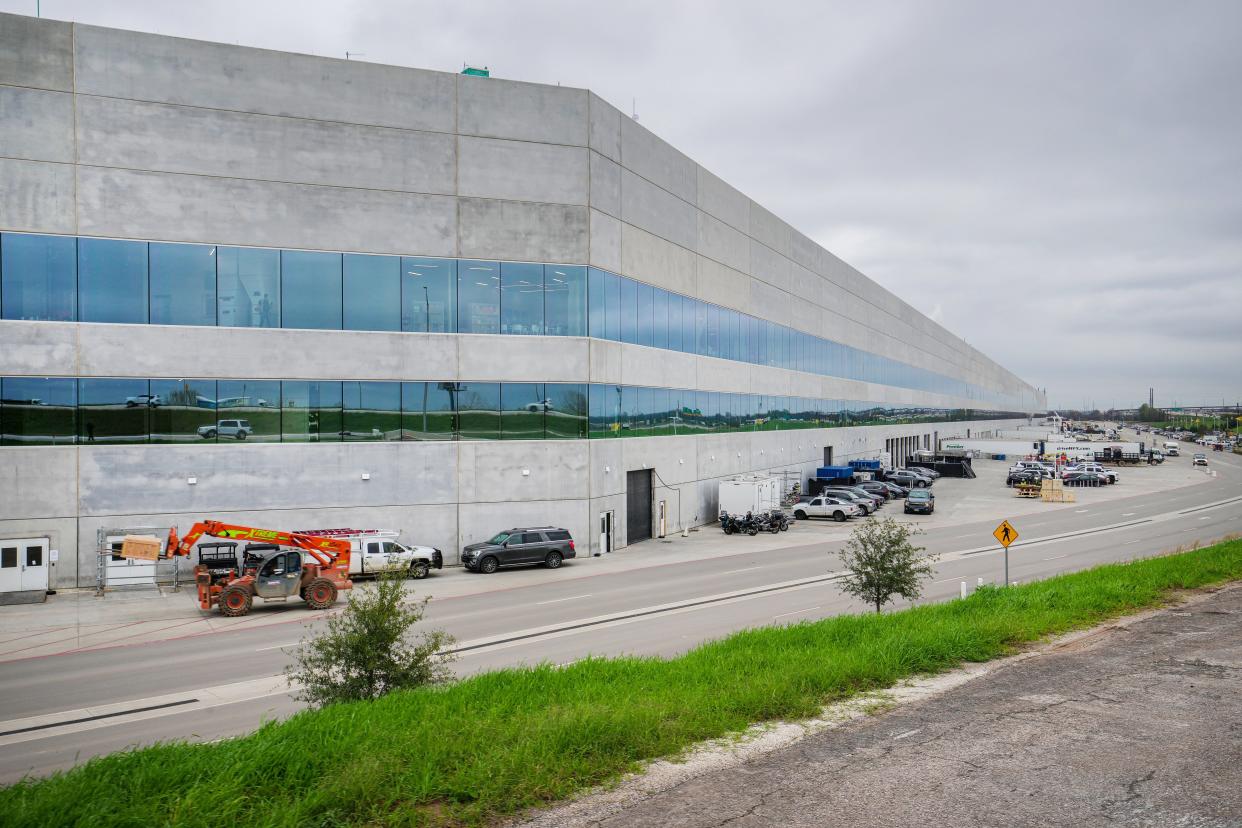Tesla factory exempts itself from Austin environmental regulations through new Texas law
Tesla, Austin’s largest private employer, no longer needs to follow the city's environmental regulations at its sprawling factory campus in eastern Travis County after it successfully applied to disannex the site under a new state law.
The new law, Senate Bill 2038 by Paul Bettencourt, R-Houston, compels municipalities like Austin to release land on city outskirts if property owners meet the law's requirements.
The city granted Tesla’s petition to release nearly 2,100 acres of land between Texas 130 and the Colorado River from its extraterritorial jurisdiction — a term referring to unincorporated land within five miles of Austin’s city limits — on March 8, per a document provided by the city to the American-Statesman on Wednesday.

The move frees Tesla from complying with Austin's air quality and water use policies at its enormous headquarters, dubbed Giga Texas. The facility has more than 10 million square feet of factory space for both electric vehicle and battery manufacturing.
Tesla also is fighting to get out from under state regulations. In December, the company sought permission from the Texas Commission on Environmental Quality to increase pollutant emissions as part of a pilot program for new equipment and manufacturing processes.
No city taxes are collected from properties in ETJs, so the city of Austin will not suffer a direct revenue loss from the move.
More: Tesla to lay off nearly 2,700 workers at Austin factory, according to WARN Act notice
City Council Member Vanessa Fuentes, whose Southeast Austin district borders the facility, said in a statement to the Statesman that Tesla's move to escape city jurisdiction is another in a long list of ways state legislators have attacked local authorities.
“Cities have a duty to protect water and natural resources," she said in the statement. "This is another example of how the state Legislature harms our communities by stripping away local authority."
Fuentes added that environmental injustice has impacted East Austin throughout its history.
"I’m deeply concerned about the impacts from Tesla’s actions here," she said.
Because unincorporated county land cannot be regulated as strictly as municipal land, some oversight of Tesla will be lost even if Travis County chooses to pass more stringent environmental policies, city of Austin spokesperson Shelley Parks told the Statesman.
"While Travis County has the authority to implement similar environmental regulations, they are limited by what they can regulate by state law,” Parks said in a written statement. “The City of Austin’s environmental regulations are more protective of water resources than unincorporated Travis County.”
Tesla submitted 2 petitions; 1 was approved
Tesla submitted the petition for release of its Giga Texas site on Feb. 7 with signatures from a majority of landowners in the ETJ area, as the law mandates.
It also could have collected signatures from more than 50% of registered voters in the area or won a city referendum to meet the law’s requirements.
Tesla had previously submitted a petition to remove another area from the city's extraterritorial jurisdictions, according to Parks, the city's spokesperson. The first petition was denied because the area was only partially in the city’s ETJ.
Several cities challenging SB 2038 in court
Bettencourt made his slogan for SB 2038 "no regulation without representation" because residents cannot vote in most city elections and are not represented on the City Council.
Texas originally gave cities the power to regulate extraterrestrial jurisdictions "to promote and protect the general health, safety, and welfare of persons residing in and adjacent to the municipalities," per the Local Government Code. But Bettencourt argued that cities had gone beyond the state's original mandate by annexing surrounding land without the consent of annexed residents.
Proponents supported the legislation for helping to speed up development unfettered by local regulations.
SB 2038 is facing legal hurdles, however. The Dallas-area city of Grand Prairie sued the state over the law in October and several Austin-area municipalities have followed suit, including Hutto and Lockhart, the Austin Business Journal reported.
More: Tesla's 2023 report shows number of employees. It is now Austin's biggest private employer.
At least 300 release petitions were filed in Austin's extraterritorial jurisdiction by March 14, Community Impact reported.
While Austin hasn't joined the lawsuit, it opposed SB 2038 during the 88th legislative session, Parks said.
“Unincorporated areas of the county ... do not have equivalent regulations needed to preserve regional water quality and protect important natural features such as Barton Springs, Lake Austin and Lady Bird Lake,” Parks wrote.
This article originally appeared on Austin American-Statesman: New Texas law lets Tesla factory bypass Austin environmental rules
